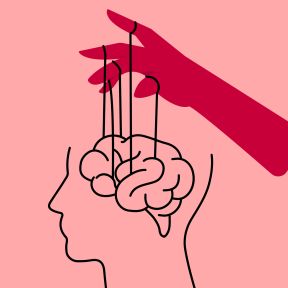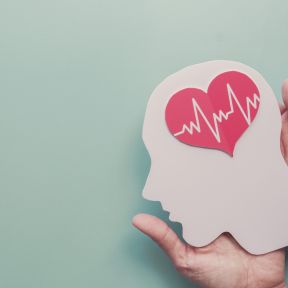Living a healthy life means making lifestyle choices that support one's physical, mental, spiritual, and emotional well-being. Managing your health can be challenging at times; when one facet of wellness demands more attention than others, you may end up struggling to maintain a good balance. But to remain of sound body, mind, and spirit, it’s important to pay attention to all aspects of health: Your mental, emotional, and spiritual sides all play a role in your overall welfare.

A state of optimal well-being means more than just the absence of disease or disorder; it also means having the resources to cope with problems and circumstances beyond your control and to recover from difficult or troubling situations. Actively focusing on this intersection between health and behavior can help prevent, or at least delay, illness and disease, and steer people to make better decisions about their well-being.
Your good health relies on you making it a priority. In addition to eating healthfully, exercising, and sleeping well, you need to be responsible for yourself, manage your time, stay organized, look out for your future self, stay connected, and live life with meaning, passion, and purpose.
Being of sound mind helps your overall health. This entails how we handle everyday stress, make decisions, maintain our relationships, as well as how we manage our moods and emotions. It also helps to be engaged, creative, and productive.
According to Sandro Galea, M.D., dean of the Boston University School of Public Health, education shapes our physical and mental health. Research shows that the higher your education level, the longer you will potentially live, plus those years will likely be healthier. College graduates live almost nine years longer than those who do not graduate from high school.
Our health is a product of the context in which we live. Whether or not we can be healthy depends on the air we breathe, the water we drink, the quality of our neighborhoods, our education and family income, the prejudice we face or do not face, and countless other factors that have little to do with doctors and medicine.
Yes, personality does indeed affect your health. The personality trait of conscientiousness is a good measurement of health; people who score low in this trait live about six years less than those who score high. Also, people low in this trait are more subject to disabilities in the last years of their lives. This means that people high in conscientiousness have a longer life expectancy and fewer years of disability.

Self-care is not about being selfish; everyone must care for and maintain their bodies and minds for optimal well-being. However, one person’s approach to self-care may not work for another. While some priorities are universal, such as eating a well-balanced diet, others are not, and each individual must custom-design a plan fitting their lifestyle, one that will deliver benefits. Some people require less sleep, while others require more. And some people devote themselves to the practice of meditation, while others put in time at the gym.
Caring for yourself seems like a no-brainer: Eating right, staying active, and sleeping well don’t sound hard, yet many people fail miserably. Self-care starts with a healthy relationship with yourself. It takes effort but it’s required to maintain overall well-being.
Exercise has a positive impact on the body’s growth and repair; the body can be in a continual state of renewal. Without regular physical activity, a person’s muscles can waste away, hindering movement, then affecting overall health and leading to decline and decay.
Proper nutrition can help protect you from illness and disease. A poor diet of processed foods that are high in fat and sugars can lead to any number of health concerns heart disease, diabetes, cancer, among others. Ohio State psychology professor Gary Wenk notes that a lousy diet generates an environment in the body that ages us too quickly and in turn impairs our thinking.
Eating a healthy diet.
Getting the sleep your body requires.
Exercising or engaging in some form of physical activity (a daily walk, pulling weeds in the garden, or high-intensity interval training).
Visiting the doctor annually.
Meditating or finding some other form of relaxation to reduce stress.
Avoiding excessive use of tech devices.
Setting boundaries with others.

Health psychology, developed in the late 1970s, is its own domain of inquiry. A health psychologist, also called a medical psychologist, helps individuals explore the link between emotions and physical health. The health psychologist also helps physicians and medical professionals understand the emotional effects of a patient’s illness or disease.
Health psychologists can be found in clinics, hospitals, and public health agencies, as well as in private practice. These practitioners are engaged in such areas of health as chronic pain management, oncology, physical rehabilitation, addiction treatment, eating disorders, among other areas.
Corporate settings also use the help of health psychologists, to promote health and wellness among employees; they also advise on workplace policies and decision-making, generally looking to encourage healthy companies.















